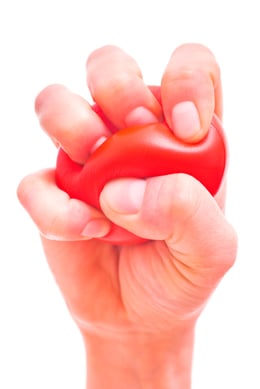If you’ve ever experienced stress affecting how you feel physically, whether through feeling nervous and physically jittery, feeling anxious and physically tense, or feeling exhausted and foggy-minded, you may have wondered how all of that stress affects your health in the long-term.
and physically jittery, feeling anxious and physically tense, or feeling exhausted and foggy-minded, you may have wondered how all of that stress affects your health in the long-term.
Scientists have repeatedly found that stress affects our physical well-being. More recently, however, scientists have also found that stress and trauma can cause epigenetic changes, or switching on and off of genes that regulate body functions such as stress responses.
The impact of stress can be passed to future generations
Beyond even these alarming individual epigenetic changes, scientists have also begun to find that epigenetic changes due to stress and trauma can also be passed down to offspring. In a study of Holocaust survivors and their children, Rachel Yehuda and a team of researchers at Mount Sinai Hospital in New York discovered just such a phenomenon.
The Holocaust survivors were found to have changes in their genes that were attributable to the traumas they witnessed or experienced firsthand, and such genetic changes are not found in Jewish people who lived outside of Europe in World War II. The children of the Holocaust survivors are not only known to have higher rates of stress disorders, but also showed the same epigenetic changes as found in their parents.[1]
Animal studies have also demonstrated the same kinds of results. In one study, researchers at Emory University in Atlanta showed that epigenetic stress responses to a particular stimulus could be and actually were passed on to offspring. The scientists exposed mice to the smell of cherry blossoms, and then shocked them. After a while, not only did the smell of cherry blossoms trigger shuddering even without the shock, but in addition, the offspring of the mice also shuddered at the smell of cherry blossoms.[2]
Other studies in both humans and animals have shown that epigenetic changes get passed on through increased methylation, or addition of methyl groups, to DNA.[3] Although most epigenetic changes are “cleaned” when fertilization occurs, some of the epigenetic changes are not “cleaned” or cleared out after the egg is fertilized by the sperm.[4]
What does this mean for you and me and the effects of stress and trauma, both in our lives, and in the lives of our parents and grandparents? What it means is that our bodies have adapted to stress in different ways, which can affect us mentally, emotionally, and physically. What it means is that the long-term impact of stress and trauma can be real in a physiological as well as a psychological sense, and that we may pass this on to our children.
What can we do about stress?
Until science catches up with how to target particular methylation responses and reverse them, we can, in the meantime, learn to de-stress ourselves, and learn new ways of helping our own minds and bodies de-stress.
As a life coach, I empower people to learn how to de-stress in a number of ways, while also getting to experience deep relaxation during our sessions together. As a survivor of generations of stress, I have had to learn how to create deep relaxation for and in myself. My paternal grandmother was widowed quite young, and left to raise young children by herself in poverty during the Great Depression. I also was widowed very young and raised two children by myself, after experiencing the trauma of essentially watching my 34-year-old husband die suddenly of a cerebral aneurysm.
Because of these deeply challenging, even generational patterns of trauma, I love helping people experience deep feelings of peace, love, and well-being, both physically and emotionally, through a variety of techniques.
Learning new, healthy patterns
As I work with clients, first and foremost, we learn to breathe deeply and calmly while stretching in such a way that tension and stress are released from the body and the mind. We also work together to create new patterns of thinking and believing which affect our mental patterns, and hence our emotional states of being.
Through life coaching, hypnotherapy, and especially through energy healing (Reiki), I may help people heal old emotional wounds, and experience deep relaxation. Through mindfulness and meditation techniques, as well as through energy healing, I empower people to feel not only deeply relaxed, but also deep peace, along with even a sense of love and well-being.
If your health issues seem to you to be more physical than stress-related, and if you believe that your physical well-being does not have an emotional component to it, I invite you to consider that, as epigenetics is now showing, and what energy healers have known for generations is that our mental patterns and emotions energetically influence our bodies, including changing our DNA.
For the body to heal and prioritize the immune response, we have to allow the body to “rest and digest” by triggering the parasympathetic nervous system. Energy healing, or Reiki, can help us shift from stress responses based on an active sympathetic nervous system to a calm, peaceful, and relaxed mind and body through activating the parasympathetic nervous system.
For your own sake, please schedule your “rest and digest” session today with a combination of life coaching and energy healing. All you have to lose is stress!
Call 202-237-7000 to schedule.
[1] https://www.theguardian.com/science/2015/aug/21/study-of-holocaust-survivors-finds-trauma-passed-on-to-childrens-genes
[2] Ibid.
[3] http://discovermagazine.com/2013/may/13-grandmas-experiences-leave-epigenetic-mark-on-your-genes
[4] Ibid.
Carol E. Richardson, M.Div., MPH, combines wisdom and training from both East and West, and focuses on wellness in mind, body, and soul. She is the author of Mornings with the Masters: Mystical Journeys in a Postmodern World, and Exodus 2012: A Mission to Save the Earth and Aging Well~Be Your Best Self Forever!.
.png?width=305&height=132&name=NIHAlogoBLUE_3_transparent%20(2).png)
